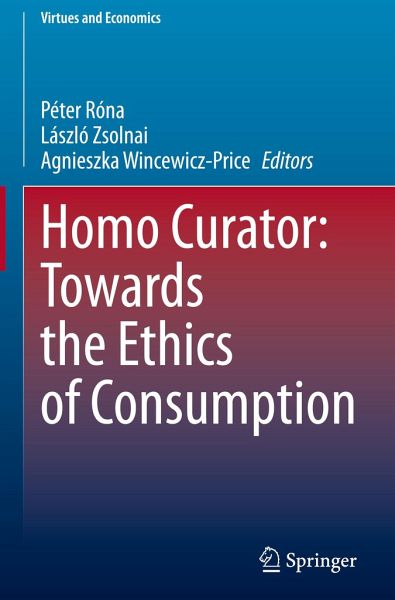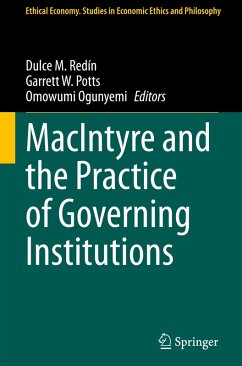
Homo Curator: Towards the Ethics of Consumption

PAYBACK Punkte
61 °P sammeln!
This book explores the under-researched sources of the consumerist culture and the environmental damage it has brought about. The book is an outcome of the symposium on "The Ethics of Consumption" organised and hosted by the Las Casas Institute at the Blackfriars Hall, University of Oxford as part of its Economics as a Moral Science Programme. It takes on two contemporary problems: the human weakness and capacity for wrong-doing, and the failure of modern economic theory to account for the moral character of human behaviour and its implicit encouragement of gluttonous life-styles. In a time wh...
This book explores the under-researched sources of the consumerist culture and the environmental damage it has brought about. The book is an outcome of the symposium on "The Ethics of Consumption" organised and hosted by the Las Casas Institute at the Blackfriars Hall, University of Oxford as part of its Economics as a Moral Science Programme. It takes on two contemporary problems: the human weakness and capacity for wrong-doing, and the failure of modern economic theory to account for the moral character of human behaviour and its implicit encouragement of gluttonous life-styles. In a time when grand political schemes are proposed to revive sustainability of global economy, the authors of the papers collected in this book highlight the need for moral renewal without which the most revolutionary structural reforms are bound to fail at producing the desired outcome. Topics of the book include the meaning and sources of avarice, the attempt to define what is enough, exploration of philosophical and theological perspectives which can serve as building blocks for the ethics of consumption. This makes the book of great interest to a broad readership of economists, social scientists and philosophers.












